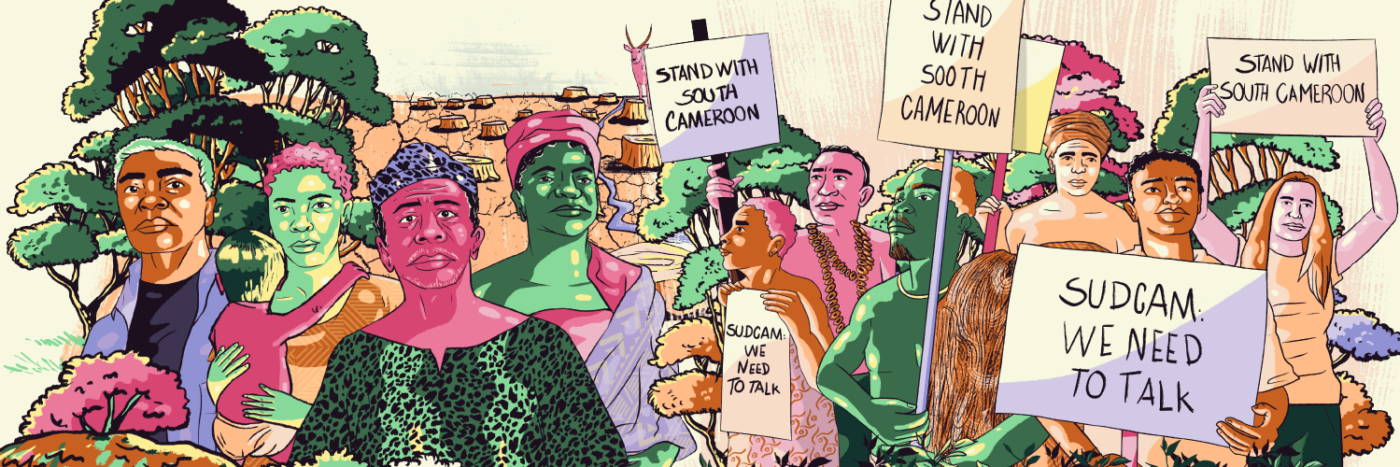The establishment of SudCam, a vast rubber plantation in southern Cameroon, was initially presented as a promise of prosperity for the surrounding communities. More than fifteen years after these commitments were made, the reality is bleak: local residents find themselves impoverished, lacking prospects for the future, and facing significant insecurity. The testimonies gathered reveal a disturbing situation.
Enticing Promises
At the outset, SudCam captured the attention of local residents with attractive promises. One village chief remarked, “We were promised great things once the plantation was established.” Assurances of job creation, improved living conditions, and easier access to education and healthcare raised hopes for the region.
A local resident reflected on the commitments made:
We were assured that SudCam would take care of us. In exchange for our land and forests, we were promised that we would receive everything we needed to eat well.
Such statements highlight the initial enthusiasm surrounding the company’s arrival.
A Bitter Reality
However, the reality has turned out to be far from these initial promises. Working conditions on the plantation have faced intense criticism. One local woman stated, “The men leave for work at 3 a.m. and return home at 3 p.m. The company doesn’t even pay extra for night shifts.” These gruelling hours underscore the pressure on employees and the toll on their family lives. Additionally, many workers lack contracts, facing alarming precarity with insufficient pay and no social protection.
Exclusion of Local Populations
The exclusion of local people from decision-making positions is also evident. As one village chief pointed out,
We have no representatives on the decision-making teams. Although we have trained individuals in our communities, the leaders always come from elsewhere.
This situation exacerbates feelings of betrayal and injustice among residents who are sidelined in decisions regarding their own land.
Unfulfilled Commitments
SudCam’s social commitments have largely eroded over time. A local resident observed,
“SudCam promised to take care of women and the elderly. Today, these groups are completely neglected.”
The disappointment underscores the widening gap between expectations and the lived reality of the communities.
Efforts to provide compensation have also fallen short: “When they first arrived, SudCam provided us with meat, fish, oil—everything we needed. Now, they only give us rice and oil.” This shift indicates a failure to uphold initial promises and contributes to growing discontent.
In light of these disillusionments, communities are organizing to assert their rights. Village chiefs are coming together around common demands, and associations advocating for local residents’ rights are emerging. However, these initiatives have yet to gain recognition from SudCam.
The story of SudCam in southern Cameroon illustrates the frequent disconnect between promises made to local populations and the actual experiences of those communities. This gap raises crucial questions about corporate responsibility and the necessity for genuine dialogue with local residents. It also serves as a reminder of the importance of adhering to international law to ensure fair and sustainable development, which is vital for the prosperity of affected regions.



